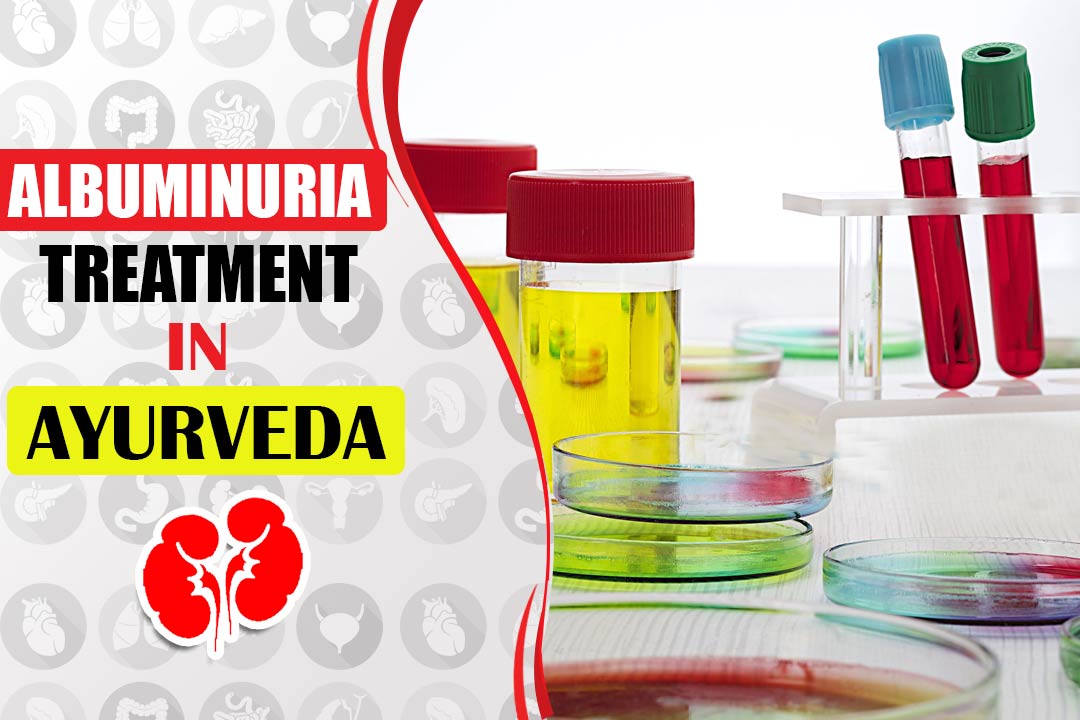
Albuminuria is a condition in which abnormal protein leakage demonstrates kidney dysfunction. The body needs albumin to maintain the fluid level in the body and eliminate wastes timely. If your body starts losing albumin, the fluid can leak into your tissues causing edema. Hence, having albumin in the blood is important for the proper functioning of the kidney and the body.
Some of the common factors responsible for Albuminuria are:
In some or other patients, signs appear in groups, so it is better for the patients to check on the early signs and begin with the Albuminuria treatment in Ayurveda.
Albuminuria is difficult to analyze in the introductory stages as there are no early symptoms that can be seen. You should seek a legitimate Albumin treatment in Ayurveda and a diet plan to shield your kidneys from falling apart. Here are a few side effects/symptoms of Albuminuria:
Sometimes, these signs and indications can't be used as verification to analyze the condition. A doctor will direct a lab test to make sure of the kidney harm. Typically, a UACR test is led as it screens the proportion of Urine Albumin Creatinine Ratio to Creatinine. If the UACR surpasses 30mg/g, the patient is determined to have Albuminuria.
The presence of protein in the urine is the main characteristic of albuminuria. Your doctor will suggest you take a series of tests, for instance:
People who are at the risk of albumin in urine include:
You can naturally overcome the problem of Albuminuria by taking Ayurvedic treatment and making some modifications to your lifestyle. Primarily, an Albuminuria patient must keep a check on the food intake as the filtering part of the kidneys becomes large to retain the nutrients in the blood. Furthermore, if you are someone who has diabetes or high blood pressure, you are more prone to this health condition. Therefore, monitor your eating habits to overcome the condition of Albuminuria naturally. Production of protein in excessive amounts is also associated with Albuminuria, so follow your Albumin treatment in Ayurveda and diet plan religiously.
Make sure you consume fruits and vegetables that have low sodium content as this will help in managing the right blood pressure level. Excessive sodium consumption increases the risk of kidney problems by raising blood pressure. The suggested amount of sodium by a nephrologist is not more than 2300 mg daily. The best way to control sodium intake is to cook at home with less salt.
The food leftovers that we consume are eliminated by the kidneys while the essential nutrients are retained in the blood. When your kidneys are not in a good state, they can also remove large protein molecules through them, which results in frothy or foamy urine. Damaged kidneys have to work hard to spill protein, so try to include protein in your diet in a small portion. To be sure, ask your healthcare advisor about the right source of protein (plant or animal source) and the right amount. A Delhi-based Ayurvedic Kidney care hospital, Karma Ayurveda, and the Ayurvedic doctor Puneet Dhawan continually make efforts to provide kidney patients with safe and effective Albumin treatment in Ayurveda and diet plans to revive the kidneys and live a healthy life.

Certificate no- AH-2023-0186
JAN 05,2023-JAN 04,2026
"Ayurveda is not just a system of medicine; it's a way of life. Connect with us to embrace a lifestyle that nurtures your body, mind, and soul."
Book Consultation Now